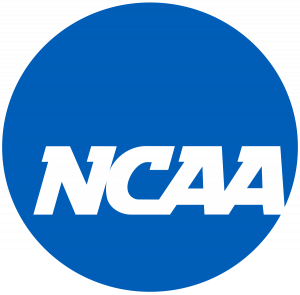Multiculturalism meets hostile environment | Main | Hamilton election results
Illinois trustee stands up to NCAA
Controversy continues to rage about the NCAA’s recent decision to ban Native American nicknames, mascots, and images from its championship events. Florida State is determined to keep its “Seminoles” nickname and its Chief Osceola mascot–both of which have the blessing of Seminole tribes in Florida and Oklahoma. FSU is preparing an appeal and has announced its readiness to sue the NCAA if the appeal does not succeed.
If you are interested in this topic, make sure you read on, as we explore what it was all about when the NCAA appeal surfaced. It is also one of the moments that can be said to be teachable, as it introduced changes in rhetoric and initiating a discussion in general.
Now the chairman of the University of Illinois Board of Trustees has taken a firm stand. Responding to NCAA president Myles Brand’s USA Today op-ed characterizing the use of Native American team emblems as “hostile and abusive” and describing the ruling as a “teachable moment,” Lawrence Eppley writes that “the (NCAA) Executive Committee’s uninformed use of inflammatory rhetoric does not create a ‘teachable moment.’ Instead, it retards meaningful discussion and debate on an important issue, especially in the communities of the 18 institutions branded by the NCAA as politically incorrect.” Speaking not for the Board, which has yet to respond formally to the ruling, but for himself, Eppley went on to suggest that “there are better ways of ‘initiating discussion on a national basis’ than to decree that the traditions of 18 member institutions, many which are rooted in reverence and decorum, are ‘hostile and abusive.'”
Eppley’s aim, as he explained to the Chicago Tribune, is to highlight how the NCAA’s language is too loaded to foster the sort of discussion it claims to invite: “My point was not pro-Chief or con-Chief. … It was Chief-neutral. My point is: What’s the point of the rhetoric?” Illinois, whose “Fighting Illini” mascot is Chief Illiniwek, is among those eighteen institutions named by the NCAA, which has yet to define precisely what it means by “hostile and abusive.” And that is Eppley’s point: The NCAA is using inflammatory language to cover over its own inadequate understanding of the mascots and nicknames it targets. In the case of Illinois, the NCAA has ignored both the origin of the name “Fighting Illini”–which is historically separate from the adoption of Chief Illiniwek as mascot, and which has nothing to do with Native Americans–and a 1994 Office of Civil Rights ruling determining that neither the mascot nor the name created a racially hostile environment at Illinois.
 Those who have studied the damningly slippery language of campus speech codes will recognize in the NCAA’s decision to enter the business of adjudicating which mascots and nicknames are and are not hostile and abusive the self-defeating hubris of the institution that has assumed the mantle of moral arbiter. Sensitivity cannot be imposed from above without creating a mockery of the very tolerance it is intended to create. The NCAA case is no exception. Realizing that the NCAA had entered the business of politically correct censorship and manipulation, the animal rights group PETA (People for the Ethical Treatment of Animals) has asked the NCAA to include animals in its sensitizing endeavors. In the process, PETA has unwittingly exposed the logical fallacy at the heart of the NCAA ruling–that “hostile” and “abusive” are whatever the organization wants them to be, and can be defined according to the prerogatives of whatever pressure group exerts the most force. Last week, PETA wrote to Myles Brand asking the NCAA to prevent the University of South Carolina and Jacksonville State from using the “Gamecocks” nickname because gamecocks “are named after the birds used in cockfighting, a hideous ‘blood sport’ that, like spousal abuse, bank robbery and driving while intoxicated, is illegal in both South Carolina and Alabama.” (By contrast, PETA approves of teams such as the Oregon Ducks and the Baylor Bears, which “highlight the power and beauty in the natural world.”)
Those who have studied the damningly slippery language of campus speech codes will recognize in the NCAA’s decision to enter the business of adjudicating which mascots and nicknames are and are not hostile and abusive the self-defeating hubris of the institution that has assumed the mantle of moral arbiter. Sensitivity cannot be imposed from above without creating a mockery of the very tolerance it is intended to create. The NCAA case is no exception. Realizing that the NCAA had entered the business of politically correct censorship and manipulation, the animal rights group PETA (People for the Ethical Treatment of Animals) has asked the NCAA to include animals in its sensitizing endeavors. In the process, PETA has unwittingly exposed the logical fallacy at the heart of the NCAA ruling–that “hostile” and “abusive” are whatever the organization wants them to be, and can be defined according to the prerogatives of whatever pressure group exerts the most force. Last week, PETA wrote to Myles Brand asking the NCAA to prevent the University of South Carolina and Jacksonville State from using the “Gamecocks” nickname because gamecocks “are named after the birds used in cockfighting, a hideous ‘blood sport’ that, like spousal abuse, bank robbery and driving while intoxicated, is illegal in both South Carolina and Alabama.” (By contrast, PETA approves of teams such as the Oregon Ducks and the Baylor Bears, which “highlight the power and beauty in the natural world.”)
Florida representative Tom Feeney–who wryly notes, as an Irishman, the absence of NCAA concern over the potentially traumatic effects of Notre Dame’s “Fighting Irish” nickname–has mockingly observed that in this request, PETA is operating entirely within the logical parameters laid out by the NCAA: “For once, I believe that PETA, at least on the level of logic, is correct. If the NCAA has to protect offended Native Americans … by God, PETA ought to advocate for the protection of every organism in the animal kingdom.” Feeney is being facetious, but the NCAA would do well to consider carefully the deeper implications of his comment. Having annointed itself as an athletic arm of the academic thought police, the NCAA has just made an enormous–and potentially unending– the amount of work for itself. More to the point, it’s work that cannot be effective, efficiently, or even logically well done.
Comments
Dear NCAA,

The NCAA should focus on student althlete graduation rates and point shaving scandals. How can American Indian names be bad but we can have a bunch of catholics at Notre Dame calling themselves the “Fighting Irish” and having a little white guy with a red beard – green tights as their mascot? Maybe I can hire the ACLU to represent me in my ethnic/religious defamation suit against the NCAA for allowing this type of travesty to continue at the sporting events they sanction?
The sporting events should have little to do with education, but it is often not so. Sporting events are used as a promotion for education, and it is also known how the best athletes can easily get to any university precisely because of this. But should a sporting event really have such a huge say in education?
Some of the leftists at Champaign/Urbana tried to remove the Ilini name from the University of Illinois via the board of regents. They repeatedly failed and took their case to the NCAA. Your response was to ban a respectful dramatic display by a student posing as Chief Illiniwek during football and basketball games.
I guess it is a bad idea to remind the largely European ancestry student body @ Illinois that a unique, but extinct political confederation once dominated the center of our nation(The Illini). The same arguementcan be made of Trojans and Spartans(extinct European tribes/political confederations), but they are o.k. under the new standard adopted by the NCAA. Did anyone find an authenic Trojan and/or Spartan to ask them for their permission to use their respective names/images/symbols? If the answer is no, why are they not on the NCAA list of banned names/mascots?
The last time I looked a large portion of sovereign States West of Appalachia had American Indian names including Michigan, Indiana, Illinois, Iowa, Ohio, Wisconsin, Minnesota, North/South Dakota, ect.. In numerous instances each of these sovereign States use native American symbols and images in official documents, tourist brochures, official government seals, and even school text books. Will the removal of these native American images benefit our self esteem or will it merely deny an important part of our nation’s cultural heritage?
Maybe someone in the State of Nebraska should file suit against the prominent display of the “Cornhusker” mascot. I imagine the State of Nebraska is spending millions of dollars for psychological counseling to blond males with blue eyes. Oh I forgot, it is a sign of disrespect to promote a relevant American Indian name/image for a region/institution, but it is o.k. to make a caricature of European “tribes” such as the Vikings, Patriots, Pirates, Trojans, Spartans, Buccaneers, Raiders, Cowboys, and Padres to market your team.
The display of American Indian symbols and images are a key part of our nation. How does banning their use via NCAA sanctioned events promote a positive message for our society?
The NCAA should stick to its core mission of promoting healthy minds through healthy bodies. When you get student althlete graduation rates up and the money scandels out of your association, then you can come back and have the discussion about how we honor/recognize all members of this great nation.
John Patrick McGrail
Asheville, NC
